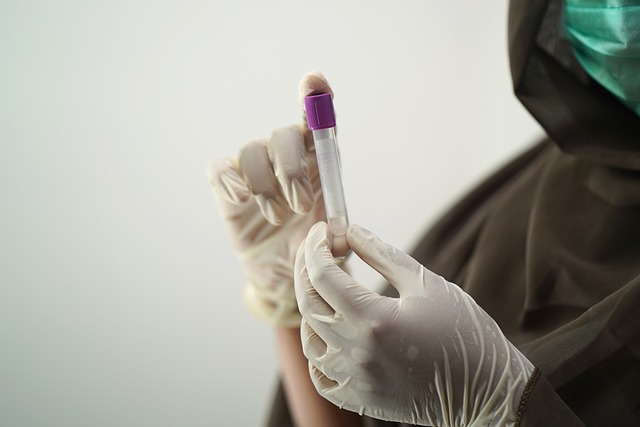The UK Testosterone Blood Test is a vital diagnostic tool for evaluating male reproductive health by measuring blood testosterone levels. Abnormalities indicate potential issues like hypogonadism, hormonal imbalances causing symptoms like libido and muscle mass loss, or elevated testosterone linked to cardiovascular risks. Early detection through this non-invasive test enables timely intervention, ensuring optimal reproductive health management for men over 50 and younger individuals with unusual symptoms.
“Unraveling the mysteries of male reproductive health, this article delves into the significance of analyzing hormone levels, particularly testosterone. Understanding these intricate dynamics is pivotal for identifying potential issues. The UK Testosterone Blood Test emerges as a powerful tool in this regard, offering insights into hormonal imbalances that may underlie various reproductive challenges.
From deciphering test results to exploring diagnostic steps, this guide promises to equip readers with knowledge, ensuring informed decisions regarding their health.”
- Understanding Male Hormone Levels and Their Role in Reproductive Health
- The UK Testosterone Blood Test: How It Works and When to Consider It
- Diagnosing Reproductive Issues in Men: Interpretations and Next Steps
Understanding Male Hormone Levels and Their Role in Reproductive Health
Understanding male hormone levels is crucial in gauging reproductive health. In men, testosterone plays a pivotal role, driving various physical and sexual developments. A UK Testosterone Blood Test measures the concentration of this key hormone in the blood, offering valuable insights into a man’s overall reproductive functioning.
Abnormalities in testosterone levels can signal underlying reproductive issues. Low testosterone (hypogonadism) may lead to decreased libido, erectile dysfunction, and muscle mass loss, while high levels could indicate potential health risks such as cardiovascular problems. Early detection through accurate testing enables timely intervention and appropriate treatment for maintaining optimal reproductive health.
The UK Testosterone Blood Test: How It Works and When to Consider It
The UK Testosterone Blood Test is a diagnostic procedure that measures the level of testosterone in the blood, providing crucial insights into an individual’s reproductive health, particularly for men experiencing potential hormone-related issues. This test is designed to detect both primary and secondary hypogonadism, conditions where the testes do not produce enough testosterone or other sex hormones, respectively. By analysing a simple blood sample, healthcare professionals can gain a comprehensive understanding of hormonal imbalances that may contribute to various symptoms like decreased muscle mass, fatigue, diminished libido, and erectile dysfunction.
Consider undergoing this test if you have persistent health concerns related to low energy levels, mood changes, or reproductive difficulties. It is particularly relevant for men over 50, as testosterone levels naturally decline with age, but it can also be beneficial for younger individuals exhibiting unusual symptoms. The UK Testosterone Blood Test offers a non-invasive and accurate method to guide diagnosis and subsequent treatment planning, ensuring that any reproductive issues are addressed effectively.
Diagnosing Reproductive Issues in Men: Interpretations and Next Steps
Diagnosing reproductive issues in men often involves a careful analysis of hormone levels, particularly testosterone. A UK Testosterone Blood Test is a crucial tool for medical professionals to assess male fertility and sexual health. The test measures the concentration of testosterone in the blood, providing valuable insights into potential endocrine-related problems.
If abnormal levels are detected, further evaluation is necessary. Next steps may include additional blood tests, physical examinations, or specialized consultations. For instance, low testosterone (hypogonadism) could indicate underlying conditions like thyroid disorders, chronic illnesses, or genetic factors. Conversely, elevated testosterone levels might suggest conditions such as polycystic ovary syndrome (PCOS) in men, or even certain tumours. Timely diagnosis and appropriate treatment are essential to address reproductive issues effectively.
Male hormone levels play a crucial role in reproductive health, and understanding their dynamics is essential for accurate diagnosis. The UK Testosterone Blood Test offers a valuable tool for assessing these levels when suspicious reproductive issues arise. By interpreting test results, healthcare professionals can take appropriate next steps, whether it’s identifying imbalances or ruling out potential concerns. This targeted approach to diagnosing male reproductive problems is a significant step forward in ensuring effective treatment and improved quality of life.
